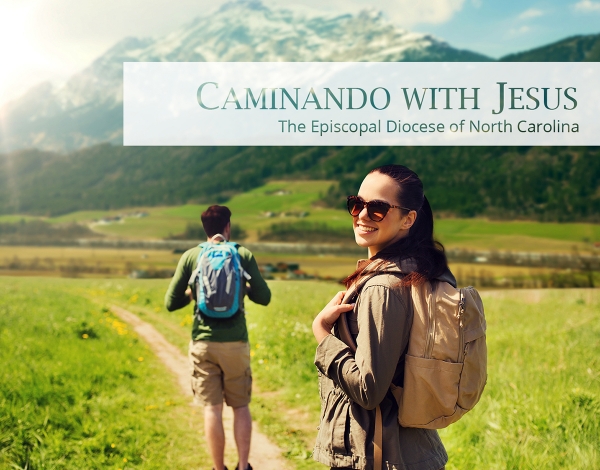CAMINANDO WITH JESUS: Familiarity: Contempt or Curiosity?

Jesus began to speak in the synagogue at Nazareth: "Today this scripture has been fulfilled in your hearing." All spoke well of him and were amazed at the gracious words that came from his mouth. They said, "Is not this Joseph's son?" He said to them, "Doubtless you will quote to me this proverb, 'Doctor, cure yourself!' And you will say, 'Do here also in your hometown the things that we have heard you did at Capernaum.'" And he said, "Truly I tell you, no prophet is accepted in the prophet's hometown. But the truth is, there were many widows in Israel in the time of Elijah, when the heaven was shut up three years and six months, and there was a severe famine over all the land; yet Elijah was sent to none of them except to a widow at Zarephath in Sidon. There were also many lepers in Israel in the time of the prophet Elisha, and none of them was cleansed except Naaman the Syrian."
When they heard this, all in the synagogue were filled with rage. They got up, drove him out of the town, and led him to the brow of the hill on which their town was built, so that they might hurl him off the cliff. But he passed through the midst of them and went on his way.
Luke 4:21-30
“Familiarity breeds contempt,” said my mentor and friend, the Rev. Randall Prior, in a great sermon he gave on this passage some years ago. I have never forgotten this phrase. And it rings so true as I read this week the story of Jesus’ not so triumphant return to his hometown! “Local boy makes good” might have been the headline in the Nazareth News & Courier on the first day, followed by a story the next day about how he almost got run out of town on a rail.
To be fair to the town folk, it seems that Jesus took pains to put some distance between himself and the initial good will that greeted him. He went right after them with tales of the old days that wounded the home pride.
I wonder if Jesus was pointing out that their home pride, their satisfaction that they had about his growing fame, only leads to odious and invidious comparisons: “We’re very good people. Look who we produced!” From that sentiment to “We’re better than others…” lay a mere fraction of a thought.
It’s only human to go from feeling special to feeling more special than others. And that’s a problem! That we’re special because we have this amazing prophet quickly turns into the alienating certitude that we are more special than everyone else.
Don’t puff yourselves up, Jesus seems to be saying to his people. Who did Elijah, the greatest prophet feed in a famine? A foreign widow—a nobody in your eyes. Who did Elisha, the greatest healer, cure of leprosy? Only one person. The general who led the army of our mortal and hated enemy, no less.
Their response is predictable. Who do you think you are? We know your people. We knew you when you were a snotty little kid. They are not only offended; in their fury they are prepared to destroy him.
“Familiarity breeds contempt.” Sometimes the people who are closest to us are the ones we least appreciate. “I know all about you.” That’s the dead giveaway. But, do we really? How often do we squelch the voice of a person or a community because we think we know all that they are capable of? Could it be instead that our smugness blinds us to the bright light that shines before us? What if we approached one another with genuine curiosity, with open ears and fresh eyes, with the respect and appreciation owed to one who is a beloved child of God, made distinctly and uniquely, one in whom God infinitely delights?
C. S. Lewis in his famous sermon “The Weight of Glory” had this to say: “Next to the Blessed Sacrament itself, your neighbour is the holiest object presented to your senses.” Our neighbor. Our kindred as well as those unrelated to us. Known and unknown. Liked and disliked. Here is the thing: we are called to remember and recognize that each and every human being is a special treasure in God’s precious creation. We are committed to these values in our Baptismal Covenant: to respect the dignity of every human being, to seek and serve Christ in all persons. Yes, you and I are special, each unique and precious. And so is everyone else! From the person nearest and dearest to the stranger whom we have never met on the other side of the globe. They too are special, unique, even. And therefore, there can be no comparisons, no rankings may be made.
For when we diminish another human being, we end up diminishing ourselves. The presumption of knowing all about Jesus kept the people of Nazareth from receiving the blessings of his ministry.Ultimately, we human beings are a mystery. All that can be said about any of us can only be said by God. And I wonder if even God remains curious about us, wondering what we’re up to next and waiting with anticipation and longing what we will become. I wonder. The mystery of being human includes the experience of surprising one another because all are capable of transcending expectations and limitations in some way. To love at all is to be open to unfolding and ongoing growth.
May familiarity breed awe and respect; may genuine and loving curiosity stay alive in each of us. Then we will be collaborators with God’s dream of beloved community, which God so dearly desires for all creation.
The Rev. Daniel Robayo is the missioner for Latino/Hispanic ministries for the Diocese of North Carolina.
Tags: Caminando with Jesus
